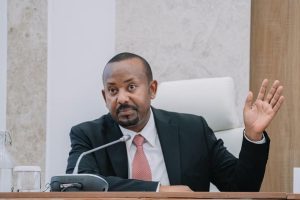
Following the ever increasing trend of migration, the issue of reintegrating returnees back into the society is becoming the concern of governments- governments of origin and destination – and international organizations.
In line with this, hence, a wide range of integrated approaches, such as economic, social and psychosocial supports, have been carried out to socialize the returnees with their respective communities and make them decent and productive workers.
Ethiopia, as a country where a quite number of its registered and undocumented citizens residing abroad and coming back home either voluntarily or involuntarily, the issue of returnees’ reintegration is becoming one of the top concerns of the government.
The country over the past few years, has been working to facilitate the economic, social and psychosocial makeup of individual returnees, taking into consideration the challenges they may face when they reunite with their respective communities.
Most importantly, stressing the importance of viewing reintegration of returnees through individual community and structural dimensions it has made efforts to achieve sustainable return and prevent re-migration.
In the recent years, the country has experienced interesting developments such as the development of legal tool that are relevant to the reintegration of returnees.
Among them, the Return Directive, issued on September 2018 and outlines mechanisms as to how returnees would get comprehensive assistance by various stakeholders under the coordinate of Federal Urban Job Creation and Food Security Agency (FUJCFSA) is the one, as documents from Refugees and Returnees Affairs Agency (ARRA) stated.
However, according to the document, reintegration in the context of return migration should be understood as a multidimensional process and a multi-stakeholder responsibility. As a single organization alone cannot ensure full reintegration, participation of communities and stakeholders at structural level is key.
Therefore, with this same purpose and to discuss ways how sustainable solutions can be achieved to reintegrate returnees as well as exchange good practices, a National Reintegration Workshop was organized by the Agency, in collaboration with the European Union, International Organization for Migration (IOM) and Ministry of Foreign Affairs, last week in Addis Ababa.
Speaking at the Workshop, Ambassador Mahlet Hailu, Permanent Secretary to Europe, America, Asia and multilateral affairs at the Ministry of Foreign Affairs said that as one of the largest refugee hosting country and also a country of origin and transit of migrants, the Government of Ethiopia has undertaken measures to minimize and overcome expected challenges.
Among others, it has amended country’s national legislation to provide more integration opportunities for refugees and returnees.
According to the Permanent Secretary, the principle of responsibility sharing through various mechanisms, including provision of financial assistance and resettlement opportunities in a concerted manner in individual, community and structural dimension to prevent re-migration should be well considered and cherished.
“If it is needed to make sustainable reintegration success, it must be comprehensive, holistic and needs-based,” the Ambassador underscored.
Eyob Awoke, Deputy Director General of ARRA for his part said that Ethiopia is hosting close to a million refugees from 26 countries which makes it the second largest refugees hosting nation in Africa, and, as usual, it will continue extending its unreserved assistance to refugees in the Horn of Africa.
The country is working on sustainable reintegration of returnees in partnership with international organizations and pertinent stakeholders,
Mentioning that currently, the country is hosting refugees of 26 nationals, he said that the majority of the refugees originate from neighboring countries including South Sudan, Somalia, Eritrea and, Sudan. “The refugees sheltered in 27 refugee camps [hosting centers]across the country,” he added.
As to him, the Agency is working in partnership with UNHCR and other stakeholders in maintaining its longstanding commitment to improve the livelihood of refugees. Likewise, it is working in partnership with the EU and other partners to ensure the provision of sustainable reintegration efforts of supporting various immigrants coming from different countries.
Sabrina Bazzanella, Migration Section Team Leader, EU Delegation to Ethiopia also said that sustainable returnee reintegration is the right approach while talking about returnees’ reintegration. “We must recognize that Ethiopia has made so concrete steps towards sustainable reintegration of returnees and refugees adoption,” she said.
As sources indicate, Ethiopia is a country of origin, transit and destinations for mixed migration in the Horn of Africa. Poverty, chronic unemployment, inadequate information on local livelihood options and ill informed decisions on migration continue to drive thousands to embark on often hazardous journeys.
Irregular migration from Ethiopia is pursued along the three routes, the Eastern route to the Middle East, the Southern route to South Africa and the Northern route, on which migrants transit through Sudan and Libya with the hope of crossing the Mediterranean Sea and ultimately reaching Europe. Unfortunately, due to a number of reasons, they failed to reach where they aspire to. To curb this illegal migration, strengthening a holistic migrant reintegration approach is crucial.
Herald April 24/2019
BY STAFF REPORTER




